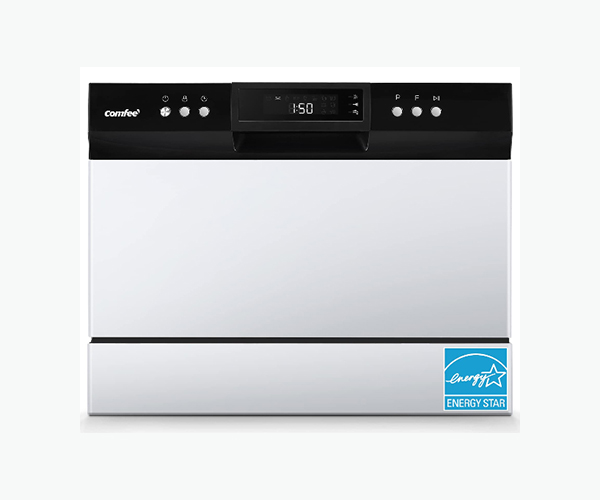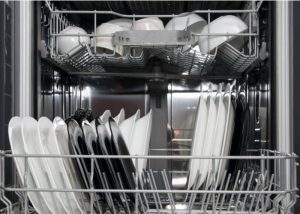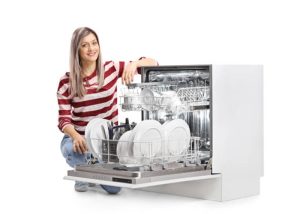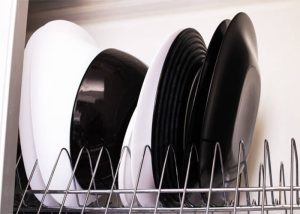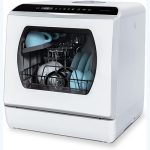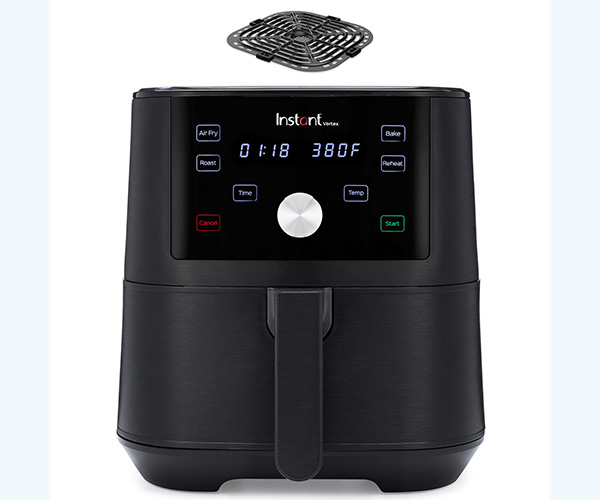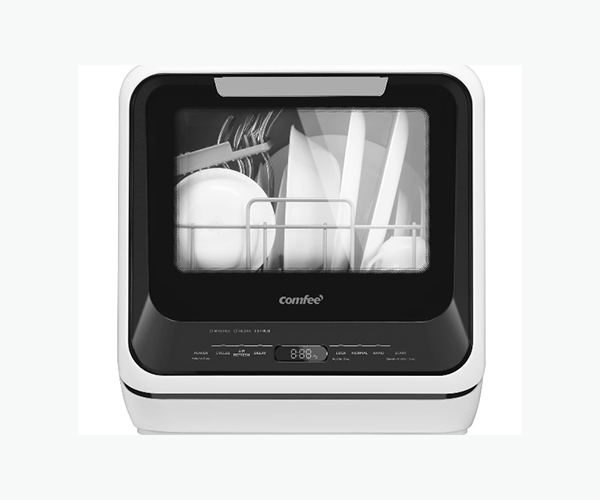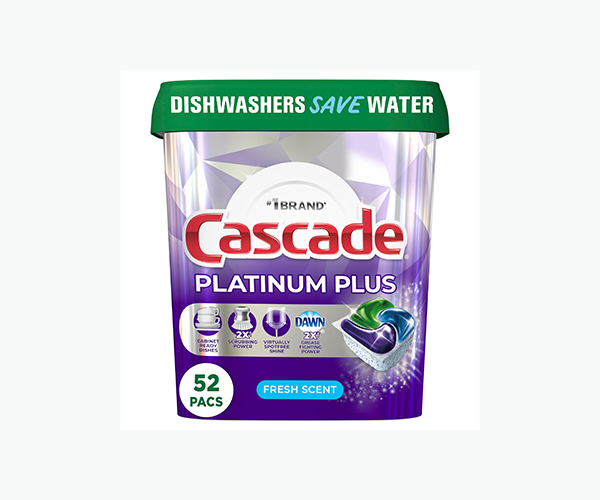Introduction
Remember the first time you loaded a dishwasher? I sure do. It was a Criterion model, sleek and promising, a symbol of modern convenience in my then-new kitchen. But, as I’ve learned over the years, even the most advanced dishwashers need a bit of TLC to keep them running smoothly. It’s not just about having clean dishes; it’s about ensuring your machine lasts as long as possible. In this comprehensive guide, we’ll dive into the world of Criterion dishwashers, exploring how to maintain them for longevity. From daily routines to troubleshooting common issues, we’ll cover everything you need to know to keep your dishwasher in top shape. So, grab a cup of coffee, and let’s unravel the secrets to extending the life of your trusty kitchen companion.
Understanding Your Criterion Dishwasher
Regarding practicality and ease of use, the dishwasher frequently has a prominent position among household appliances. In this cutthroat industry, Criterion dishwashers in particular have carved out a place for themselves. These appliances, which are well-known for their durability and effectiveness, are more than just dishwashers; they are examples of contemporary kitchen ingenuity.
Criterion offers a variety of models, each intended to meet certain requirements. Criterion provides a variety of dishwashers, including high loop models that provide ample room for larger pots and pans and tiny 24 inch portable models that are ideal for smaller kitchens or apartments. However, these dishwashers’ dedication to performance and longevity is what really makes them stand out.
Model Details
Let’s examine a few popular types and the particular upkeep requirements for each. For example, the superior cleaning power of the high loop dishwasher types makes them very popular. Because of their elevated drain loop design, they provide a more hygienic wash cycle by preventing backflow. This element, which protects against contamination and water damage, is essential to preserving the appliance’s lifespan.
For individuals who value flexibility and space efficiency, however, the 24 inch portable dishwashing units are a great option. These types are perfect for homes with limited space yet daily dishwashing requirements exceeding 500 words. Even though they are small in size, they have a powerful cleaning system and frequently have multiple settings to accommodate different kinds of dishes and levels of soiling.
The secret to guaranteeing the longevity of your Criterion dishwasher type is to be aware of its unique features and upkeep needs. Frequent maintenance not only keeps your dishwasher operating at peak efficiency but also contributes to water and energy conservation, making it a more environmentally friendly alternative for your home.
Whether you own a high loop model intended for intense cleaning or a 24 inch portable dishwasher ideal for tiny areas, we’ll go over the routine maintenance advice that’s necessary to keep your Criterion dishwasher operating at its best in the sections that follow.
Regular Maintenance Tips
Maintaining your dishwasher extends the life of an indispensable kitchen item and ensures that your dishes are always clean. Regular maintenance is essential, regardless of whether you own a 24-inch portable dishwasher or an expensive appliance dishwasher. Let’s dissect some basic yet practical maintenance advice that works for all dishwasher designs, including high loop models, which are very well-liked for their good drainage system.
Daily Maintenance
- Rinse Before Loading: While modern dishwashers are quite powerful, rinsing off large food particles can prevent clogs and maintain efficiency.
- Check and Clean the Door Seal: Food particles and grime can accumulate on the door seal. Wipe it down daily with a damp cloth to ensure a tight seal and prevent leaks.
Weekly Check-ups
- Inspect the Spray Arms: Ensure the spray arms are moving freely and their holes are not clogged with food particles. A toothpick can be a handy tool for unclogging.
- Clean the Filter: Regularly cleaning the dishwasher filter is crucial, especially in models like the high loop dishwasher, where efficient drainage is key. Remove the filter and rinse it under running water to remove any debris.
Monthly Deep Cleaning
- Use a Dishwasher Cleaner: Run an empty cycle with a specialized dishwasher cleaner to remove any grease and limescale buildup. This is particularly important for maintaining the performance of a 24-inch portable dishwasher, which may have less powerful cleaning cycles compared to larger models.
- Inspect and Clean the High Loop: If your dishwasher is equipped with a high loop setup, ensure that the loop is clear of any obstructions and clean. This prevents dirty water from flowing back into the dishwasher.
Regular maintenance of your dishwasher, irrespective of its type – be it a high-end appliance dishwasher, a 24-inch portable dishwasher, or one with a high loop system – ensures not only clean dishes but also the longevity and efficiency of your appliance. By incorporating these simple practices into your routine, you can avoid common issues and ensure your dishwasher serves you well for years to come.
Troubleshooting Common Issues
There will inevitably be some hitches in the maintenance of any equipment dishwasher, but the Criterion models in particular. You can prolong the life of your dishwasher and save time and money by learning how to handle these problems. Let’s look at some typical issues you may encounter and how to resolve them.
1. The dishwasher isn’t draining well
Improper draining is one of the most common problems with dishwashers, including the 24 inch portable dishwasher. A kink in the drain pipe or a blocked filter are frequently to blame for this. Check the dishwasher’s filter first, which is situated in the bottom. Clear out any food particles or debris that could be obstructing the water’s flow. Examine the drain hose after that. Backflow can be avoided using a high loop dishwasher arrangement, but kinking is a risk. The hose is looped up high under the sink before connecting to the drain. Make sure the hose is not twisted or bowed, as this could obstruct the flow of water.
2. The dishes aren’t getting clean
Should the dishes always come out unclean, there may be a problem with the spray arms. Food particles have the potential to block the spray arms’ holes over time, decreasing their efficacy. Take off the arms and give them a thorough cleaning under running water. You can clean the holes with a toothpick or a small brush. Make sure you’re loading the dishwasher correctly as well. Dish overloading or misaligning the dishes might clog the spray arms and hinder a complete cleaning.
3. Strange Sounds While strange noises during Operation can be unsettling, there are frequently easy fixes for them. Something caught in the vicinity of the chopper blade could be the cause of a grinding noise. After shutting off the dishwasher, check the surrounding area for any foreign objects. Conversely, rattling noises could come from dishes or loose utensils shaking while the machine is washing. Before launching the dishwasher, make sure everything is firmly in its designated spot.
4. The dishwasher does not start
If your dishwasher won’t start, there may be an electrical issue. Verify that the circuit breaker hasn’t tripped and that the appliance is correctly plugged in. It is imperative to guarantee a solid and continuous power source connection for portable versions, such as a 24 inch portable dishwasher. Examine the door latch as well. The safety feature will stop the dishwasher from beginning if the door isn’t closed all the way.
5. Seepage of Water
A broken door seal or a faulty connection in the water inlet can both result in water leaks. Examine the door gasket for indications of deterioration and replace it if required. Additionally, make sure the connections to the water supply are secure, particularly if you recently moved or modified your dishwasher—for example, by adding a high loop dishwasher configuration.
Whether you have a conventional model or a 24 inch portable dishwasher, you can make sure that your Criterion dishwasher stays a dependable and effective kitchen equipment by being aware of these typical problems and learning how to fix them. Recall that prompt troubleshooting and routine maintenance are essential to any dishwasher’s lifespan.
Enhancing Performance and Efficiency
A few clever habits can go a long way toward guaranteeing your appliance dishwasher performs at its best. Its performance and efficiency should be maximized rather than merely maintained. Let’s explore how to use your Criterion dishwasher to accomplish this.
Optimizing Detergent Use
Choosing the right detergent for your dishwasher is more than a matter of scent or brand preference. It’s about finding a formula that works effectively with your specific model. For Criterion dishwashers, which are known for their robust cleaning capabilities, you want a detergent that complements this strength. Look for detergents labeled as high-efficiency, and be mindful of the amount you use. Overloading detergent can lead to residue on dishes and can even affect the dishwasher’s performance over time.
Load Optimization
How you load your dishwasher impacts not only the cleanliness of your dishes but also the efficiency of each cycle. Start by placing larger items on the sides and back, ensuring they don’t block water and detergent from reaching other dishes. Utilize the flexibility of the adjustable racks in your Criterion dishwasher to accommodate various sizes of dishes. Remember, a well-organized dishwasher means more dishes get cleaned in a single cycle, reducing water and energy usage over time.
Water and Energy Conservation Tips
Conserving water and energy is not only good for the environment but also for your utility bills. One way to achieve this is by using the high loop dishwasher method in your plumbing setup. This technique prevents backflow and ensures efficient drainage, which is crucial for dishwashers like the Criterion models. Additionally, consider running your dishwasher during off-peak hours to save on energy costs.
For those with space constraints or specific needs, a 24 inch portable dishwasher can be an excellent choice. These compact units, especially those priced above $500, often come with advanced features that promote energy and water efficiency without compromising on cleaning power. They are ideal for smaller kitchens or as an additional unit in large households.
In conclusion, enhancing the performance and efficiency of your Criterion dishwasher involves thoughtful practices in detergent use, loading, and conservation techniques. By following these tips, you not only ensure a longer lifespan for your appliance but also contribute to a more sustainable lifestyle.
Advanced Care Techniques
Advanced care practices are essential for preserving the longevity and best performance of your Criterion dishwasher. These tips not only maintain your dishwasher operating efficiently over time, but they also assist avoid common problems. Now let’s explore some of these more complex techniques, specifically geared toward your Criterion dishwasher. We’ll cover important topics like filter upkeep, gasket and seal maintenance, and handling hard water.
Filter Cleaning and Replacement
The heart of any appliance dishwasher, especially your Criterion model, is its filter. A clean filter is essential for efficient operation and to prevent food particles from redepositing on your dishes. Here’s how to keep it in top condition:
- Locate and Remove the Filter: Typically, the filter is located at the bottom of the dishwasher. Gently remove it, being careful not to damage any components.
- Rinse and Scrub: Rinse the filter under running water. Use a soft brush to gently scrub away any stuck-on food or debris.
- Regular Replacement: Depending on your usage, replace the dishwasher filter every 3-6 months. This ensures your dishwasher operates efficiently and maintains cleanliness.
Seal and Gasket Care
The seal and gasket of your 24 inch portable dishwasher are vital for preventing leaks and ensuring that the appliance operates quietly and efficiently. To maintain these:
- Regular Inspection: Check the door seal and gasket regularly for any signs of wear or damage. Look for cracks or areas where the seal might be coming loose.
- Gentle Cleaning: Clean the seals with a damp cloth, avoiding harsh chemicals that can degrade the rubber. This helps in maintaining the integrity of the seal.
Dealing with Hard Water
Hard water can be a significant challenge, especially in areas with high mineral content in the water supply. It can lead to spots on dishes and buildup in your high loop dishwasher, affecting its performance. Here’s how to tackle it:
- Use Rinse Aids: Rinse aids can help prevent water spots and film from hard water.
- Regular Vinegar Cycles: Run an empty cycle with a cup of vinegar placed on the top rack. This helps in breaking down mineral deposits.
- Water Softeners: Consider installing a water softener if hard water is a persistent issue in your area. This can significantly improve the performance and lifespan of your dishwasher.
By implementing these advanced care techniques, you can significantly enhance the performance and extend the lifespan of your Criterion dishwasher. Whether it’s a standard model or a 24 inch portable dishwasher, these tips ensure that your appliance remains a reliable and efficient part of your kitchen. Remember, a little extra care goes a long way in maintaining the efficiency and longevity of your dishwasher.
Seasonal Maintenance
The demands placed on our home appliances vary with the seasons. This also applies to your dishwasher, an essential kitchen workhorse. The trick is to know how to modify your dishwasher maintenance to fit these shifts, whether you’re getting ready for the holiday feasts or calming down during the slower months. In this article, we’ll discuss how to manage seasonal changes with an emphasis on appliance dishwashers, the value of high loop dishwashing setups, and the advantages of 24-inch portable dishwashers.
Preparing for High-Usage Periods
Holiday Seasons and Gatherings: The festive season often means more cooking and, consequently, more dishes. This is when your dishwasher really proves its worth. To prepare, ensure that all filters are clean and that the spray arms are unobstructed. It’s also a good time to run a cleaning cycle with a dishwasher cleaner to ensure optimal performance.
The High Loop Dishwasher Setup: One crucial aspect often overlooked is the drain hose configuration, known as the ‘high loop’. This setup prevents backflow of dirty water into the dishwasher, which is especially important during high-usage periods when the risk of clogs and backflow increases. Ensure your dishwasher’s drain hose is looped high up beneath the kitchen sink to avoid such issues.
Adapting to Quieter Times
The Role of a 24-Inch Portable Dishwasher: For those with smaller kitchens or who live alone, a 24-inch portable dishwasher is a perfect solution. It’s compact, efficient, and can be stored away when not in use, making it ideal for periods of low usage. Plus, these models often come with features comparable to their larger counterparts, ensuring you don’t sacrifice performance for space.
Off-Season Care: During times when your dishwasher isn’t being used as frequently, it’s important to keep it in good condition. Run a short cycle every few weeks to prevent seals from drying out and to stop odors from building up. This is also a great time to deep clean the dishwasher, checking for any parts that might need repair or replacement.
Seasonal Adjustments for Efficiency
Energy and Water Conservation: Regardless of the season, conserving energy and water is always a priority. Ensure your dishwasher is full, but not overloaded, for each cycle. Consider using eco-friendly settings that use less water and energy. For those with a 24-inch portable dishwasher, these models are often designed with efficiency in mind, making them a great choice for the environmentally conscious.
Preparing for Temperature Changes: As temperatures drop, the water entering your dishwasher might be colder, which can affect cleaning performance. Ensure your water heater is set to an appropriate temperature (around 120°F) to help your dishwasher clean effectively.
In conclusion, seasonal maintenance of your dishwasher, whether it’s a standard appliance dishwasher, a model with a high loop setup, or a 24-inch portable dishwasher, is crucial for its longevity and efficiency. By adapting your maintenance routine to the changing demands of each season, you can ensure that your dishwasher remains a reliable and efficient tool in your kitchen arsenal.
Long-Term Considerations
Knowing when to replace or improve your Criterion dishwasher is essential for its long-term maintenance. It’s not only about fixing a broken dishwasher; it’s also about realizing when your dishwasher has outlived its usefulness or is becoming too expensive to maintain.
When to Upgrade or Replace
The average lifespan of a dishwasher is around 7 to 12 years, but this can vary based on the model and how well it’s maintained. For instance, a 24 inch portable dishwasher might have a different lifespan compared to a built-in model. If you find yourself frequently calling for repairs, or if your dishwasher is nearing the decade mark, it might be time to consider an upgrade. Modern dishwashers, like the latest 24 inch portable dishwasher models, offer advanced features such as improved energy efficiency, quieter operation, and more effective cleaning technologies.
When assessing whether to replace your dishwasher, consider the following:
- Performance: Is your dishwasher still cleaning effectively? If you notice a decline in cleaning quality, it might be time for a new one.
- Energy Efficiency: Newer models are often more energy-efficient, which can save you money in the long run.
- Repair Costs: If the cost of repairs is more than half the price of a new dishwasher, it’s financially wiser to invest in a new appliance.
Recycling and Disposal of Old Dishwashers
Disposing of your old dishwasher responsibly is crucial for environmental conservation. Many parts of a dishwasher, such as metals and plastics, can be recycled. Contact local waste management services to inquire about appliance recycling programs. Some retailers also offer haul-away services for old appliances when you purchase a new one.
High Loop Dishwasher Installation
If you’re installing a new dishwasher, consider the ‘high loop’ installation method. This technique involves routing the dishwasher drain hose up to the underside of the countertop before connecting it to the drain. The high loop method is essential for preventing backflow of dirty water into the dishwasher, which can be a common issue in older or improperly installed systems. This simple yet effective installation step can significantly extend the lifespan of your new dishwasher.
Conclusion
In summary, upkeep of your dishwasher entails knowing when to replace it in addition to routine cleaning and troubleshooting. Remember that correct installation and disposal of the old unit are just as vital as the regular maintenance, regardless of whether you choose to buy a new 24 inch portable dishwasher or a different model. You can make sure that your appliance dishwasher stays a vital, effective, and environmentally responsible component of your house by paying attention to these long-term considerations.
Frequently Asked Questions About Dishwasher Maintenance
How often should I clean my dishwasher filter?
- Answer: It’s recommended to clean your dishwasher filter every 1-2 months. However, if you notice your dishes aren’t as clean as usual, check the filter for debris and clean it accordingly. Regular cleaning prevents buildup and ensures efficient operation.
2. Can I use any detergent in my Criterion dishwasher?
- Answer: While most modern dishwashers are compatible with a variety of detergents, it’s best to use a detergent specifically designed for dishwashers. Avoid using hand dishwashing liquid as it can create excess suds and potentially damage the machine.
3. What is the best way to load a dishwasher for optimal cleaning?
- Answer: Place larger items on the bottom rack and smaller, more delicate items on the top. Ensure that nothing obstructs the spray arms and that all items are spaced out enough to allow water and detergent to circulate freely.
4. How can I prevent my dishwasher from smelling?
- Answer: Regular cleaning is key. Clean the filter, use a dishwasher cleaner or a cup of white vinegar in an empty cycle monthly, and leave the door ajar between uses to allow air circulation.
5. Is it necessary to rinse dishes before loading them into the dishwasher?
- Answer: Modern dishwashers are designed to handle food residue, so pre-rinsing isn’t necessary. However, scraping off large food particles can prevent filter clogging and improve cleaning efficiency.
6. What should I do if my dishwasher isn’t draining properly?
- Answer: First, check for clogs in the filter and drain hose. If these are clear, the issue might be with the drain pump or other components, in which case professional repair may be needed.
7. Can hard water affect my dishwasher’s performance?
- Answer: Yes, hard water can lead to mineral buildup, affecting cleaning effectiveness. Using a rinse aid or a water softener can help mitigate these effects. Regularly cleaning with a descaling agent is also beneficial.
8. When should I consider replacing my dishwasher?
- Answer: Dishwashers typically last about 10 years. Consider replacing yours if it frequently needs repairs, doesn’t clean effectively, or if newer models offer significantly better efficiency or features.
Summary of “Dishwasher Maintenance: Tips for Longevity”
Introduction
The blog opens with a personal anecdote, setting a relatable tone for the reader. It emphasizes the importance of regular maintenance in extending the lifespan of a dishwasher, particularly focusing on Criterion dishwashers. This section sets the stage for a detailed exploration of various maintenance strategies.
Understanding Your Criterion Dishwasher
- Overview of Criterion Dishwashers: This part introduces the Criterion brand, highlighting its unique features and why it stands out in the market.
- Model Specifications: Discusses various models of Criterion dishwashers, focusing on their specific maintenance needs. This section helps readers identify and understand the unique requirements of their particular dishwasher model.
Regular Maintenance Tips
- Daily Maintenance: Outlines simple, everyday practices to keep the dishwasher in optimal condition.
- Weekly Check-ups: Details what components should be inspected weekly to prevent long-term issues.
- Monthly Deep Cleaning: Provides a comprehensive guide for conducting a thorough cleaning of the dishwasher every month, ensuring it operates efficiently.
Troubleshooting Common Issues
- Identifying Common Problems: Lists typical problems that dishwasher owners might encounter, offering practical solutions.
- DIY Fixes vs. Professional Help: Advises when a problem can be fixed by the owner and when it’s time to call in a professional. This section empowers readers to handle minor issues while recognizing more serious problems that require expert intervention.
Enhancing Performance and Efficiency
- Optimizing Detergent Use: Guides on selecting the right detergent and the appropriate amount to use for efficient cleaning.
- Load Optimization: Best practices for loading dishes to maximize cleaning effectiveness.
- Water and Energy Conservation Tips: Offers tips on how to use the dishwasher in an environmentally friendly and cost-effective manner.
Advanced Care Techniques
- Filter Cleaning and Replacement: A detailed tutorial on maintaining and replacing dishwasher filters.
- Seal and Gasket Care: Tips for ensuring the longevity of door seals and gaskets, crucial for preventing leaks.
- Dealing with Hard Water: Solutions for managing hard water issues to prevent mineral buildup and maintain dishwasher efficiency.
Seasonal Maintenance
- Preparing for Heavy Use: Tips for getting the dishwasher ready for periods of heavy use, like during the holidays.
- Off-Season Care: Advice on maintaining the dishwasher when it’s not in regular use, ensuring it stays in good condition.
Long-Term Considerations
- When to Upgrade or Replace: Helps readers understand the typical lifespan of a dishwasher and the signs that indicate it’s time for an upgrade or replacement.
- Recycling and Disposal of Old Dishwashers: Provides environmentally friendly options for disposing of or recycling old dishwashers.
Conclusion
The conclusion recaps the key maintenance tips discussed in the article, emphasizing the importance of regular care for the longevity of the dishwasher. It serves as a final encouragement for readers to adopt these practices to ensure their dishwasher remains a reliable kitchen aid for years to come.

